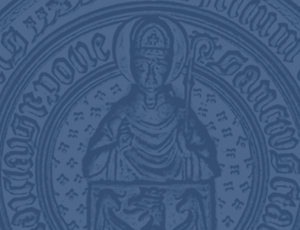Nakładem wydawnictwa Księgarnia Akademicka pod red. prof. Roberta Kłosowicza ukazał się drugi numer czasopisma „Politeja. Pismo Wydziału Studiów Międzynarodowych i Politycznych Uniwersytetu Jagiellońskiego” poświęcony tematyce afrykańskiej, zatytułowany „The Problem of Africa’s Dysfunctional States”.
Drugi numer czasopisma „Politeja” poświęcony tematyce afrykańskiej pod red. prof. Roberta Kłosowicza
Nakładem wydawnictwa Księgarnia Akademicka pod red. prof. Roberta Kłosowicza ukazał się drugi numer czasopisma „Politeja. Pismo Wydziału Studiów Międzynarodowych i Politycznych Uniwersytetu Jagiellońskiego” poświęcony tematyce afrykańskiej, zatytułowany „The Problem of Africa’s Dysfunctional States”. Na numer składa się 14 artykułów w języku angielskim autorstwa polskich i zagranicznych autorów.
It is a truism to say that a great diversity that characterizes the contemporary world also applies to dysfunctional states. State dysfunctionality depends on many factors, which in the case of African statehoods may be, for example, specific conditions for their historical development, different in relation to particular former European colonial powers. The state dysfunctionality on the African continent has many different shades, often presenting its own specificity in particular regions. Most researchers describing the problems of African countries, especially Sub-Saharan ones, point to such factors as the legacy of colonialism, bad governance, tribalism and group conflicts (mainly of ethnic character), economic underdevelopment, corruption or the economy based on natural resources (often referring to the concept of resource curse). However, the problem itself seems to be much more complex and it would be a mistake to tar the entire region in question with the same brush. The presented volume was intended, among other things, to embrace this diversity depicted in a number of case studies in which the contributors analyze some of the factors leading to state dysfunctionality in Africa, the situation in particular African states or regions, as well as the attempts undertaken to tackle this phenomenon.
- ze wstępu redaktora tomu prof. Roberta Kłosowicza
„Politeja. The Journal of the Faculty of International and Political Studies of the Jagiellonian University”
No. 56 (5/2018)
The Problem of Africa’s Dysfunctional States
red. Robert Kłosowicz
Wydawnictwo: Księgarnia Akademicka
Język publikacji: angielski
Stron: 278
Numer jest dostępny w formule open access: ebook



